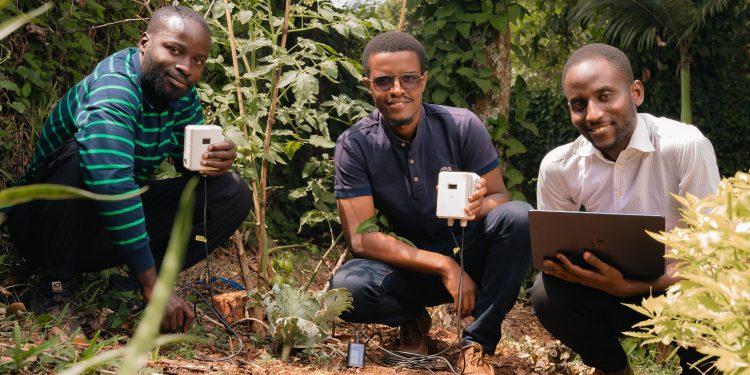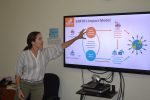African Universities Urged to Reinvent Themselves to Stay Relevant to the Economy

By Evaline Acan
At the heart of Africa’s development lies a powerful question: Are our universities preparing graduates for the jobs of tomorrow or the jobs of yesterday? As the global economy shifts under the weight of Artificial Intelligence (AI), automation, and digital innovation, higher education institutions on the continent face a critical choice: reinvent or risk irrelevance.
Artificial Intelligence (AI), once the stuff of science fiction, is now woven into everyday life. From health systems predicting disease outbreaks to apps that translate languages in real time, AI is redefining how people live and work. At its core, AI refers to computer systems that mimic human intelligence – learning, reasoning, and even decision-making (Pearson, 2021).
According to UNESCO (2022), AI driven teaching and research are becoming standard in higher education systems worldwide. For African institutions that face the challenge of limited resources and rising student numbers, AI presents not just a challenge, but an opportunity to leapfrog old obstacles.
Education experts caution that African universities cannot afford to lag. “Graduates must be equipped for a labour market increasingly defined by digital skills and entrepreneurship,” says education scholar Peter Okebukola (2023). Without significant reforms, higher education institutions risk producing graduates whose skills do not align with the demands of the modern economy.
Some governments are already responding. Kenya, Rwanda, and South Africa, for example, have adopted national AI strategies that position universities as engines of innovation and capacity building (African Union, 2022). This momentum is reshaping the higher education landscape, forcing institutions to rethink not just what they teach, but how they teach.
The call for action comes with clear directions:
- Develop AI and digital use policies that address ethics and academic integrity.
- Restructure curricula so that every graduate, whether in engineering or humanities leaves with digital literacy and problem-solving skills.
- Partner with industries to co-create programmes, expand internships, and drive innovation hubs on campus.
- Invest in faculty capacity, equipping lecturers to integrate AI tools and blended learning methods into classrooms.
The opportunities are immense. Universities that embrace AI could lead research in climate-smart agriculture, health technologies, and digital governance which are critical areas to Africa’s development. Flexible, AI-supported learning could widen access for millions of young people and adults eager to reskill in an uncertain job market.
Regional integration efforts, such as the African Continental Free Trade Area (AfCFTA), provide an additional layer of possibility. Universities could collaborate on joint research, credit transfer systems, and cross-border mobility, ensuring that knowledge flows as freely as trade.
The existing challenge of digital skills deficits is now intensified by the rapid, mainstream adoption of Artificial Intelligence (AI) across global economies, underscoring the urgency for institutional transformation. The “State of AI Report 2025” confirms this shift, showing that paid AI adoption in U.S. businesses surged dramatically to 43.8% by September 2025, indicating that AI integration is a current commercial reality, not a future projection. For African nations with large, youthful workforces, this transformation presents both peril and potential: while AI-driven augmentation is already squeezing entry-level job roles globally, the technology offers unparalleled opportunities to leapfrog old obstacles in locally relevant domains, such as climate-smart agriculture, digital governance, and healthcare, as demonstrated by frontier models being tested in Nairobi, Kenya. Therefore, African universities cannot afford to lag; they must pivot beyond basic digital literacy to institutionalize deep AI competencies. This requires restructuring curricula to ensure every graduate receives foundational AI literacy, prioritizing ethical AI training to address emerging societal and security risks, and vigorously investing in interdisciplinary research that leverages AI to solve pressing regional development challenges. Such deliberate action is essential to bridge the skills gap, positioning African graduates as leaders, and ensuring the continent’s higher education sector acts as a driver, rather than a passenger, in the accelerating economic transformation.
The future relevance of African universities will depend not just on technology, but on the willingness of higher education institutions to change. Those that embrace innovation will secure their place as drivers of Africa’s economic transformation. Those that hesitate risk being bypassed by a digital-first world.
The future belongs to universities that act now. Africa cannot afford for its higher education sector to be a passenger; it must be the driver of innovation.





